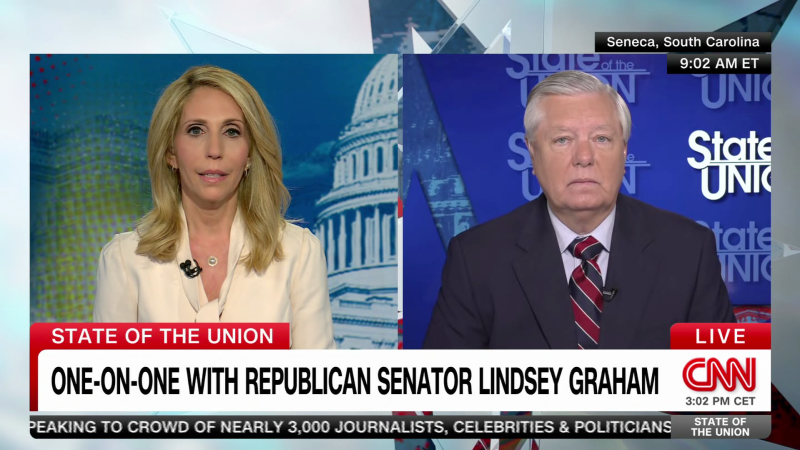In a recent interview with CNN’s Dana Bash, Republican Senator Lindsey Graham discussed the issue of presidential immunity and the implications for President Donald Trump. Graham stated that there is no absolute immunity for the president in the Constitution, suggesting that the Supreme Court may send the issue back to lower courts to determine which actions fall within presidential immunity and which are considered personal. This statement implies that the current legal standards regarding presidential immunity may not be sufficient to protect Trump from potential legal challenges.
Graham’s comments come at a time when President Trump is facing multiple legal challenges, including investigations into his finances, business dealings, and potential collusion with Russia during the 2016 election. The issue of presidential immunity has been a central point of contention in these cases, with Trump’s legal team arguing that he is protected from civil and criminal investigations while in office. However, Graham’s statement suggests that there may be limits to this immunity, and that the Supreme Court may need to clarify the extent to which the president can be held accountable for his actions.
The concept of presidential immunity is a contentious issue that has been debated throughout American history. While the Constitution does not explicitly grant the president immunity from legal actions, there is a long-standing tradition of executive privilege that has been used to shield presidents from certain forms of scrutiny. However, Graham’s comments suggest that this immunity may not be absolute, and that the courts may need to establish clearer guidelines for when and how the president can be held accountable for his actions.
Graham’s position on presidential immunity is significant, given his role as a prominent Republican senator and close ally of President Trump. His comments signal a potential shift in the Republican Party’s stance on the issue, as more lawmakers come to recognize the need for greater transparency and accountability in government. This shift reflects growing concerns about presidential power and the potential for abuse of authority, particularly in light of the ongoing investigations into Trump’s conduct.
Overall, Senator Graham’s comments highlight the complexities of the issue of presidential immunity and the need for clarity in the legal standards governing presidential conduct. As the Supreme Court considers these issues, it will be important to establish clear guidelines for when and how the president can be held accountable for his actions, ensuring that no individual, regardless of their political office, is above the law. Ultimately, Graham’s statement underscores the importance of upholding the principles of transparency and accountability in government, even in the face of political pressure and partisan interests.


